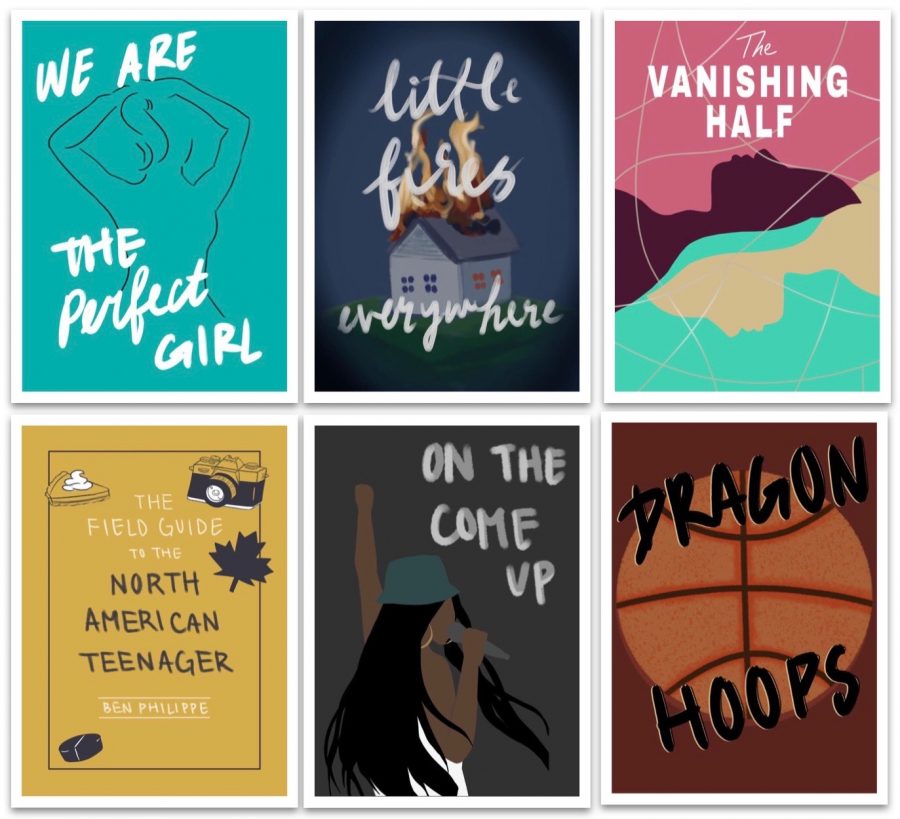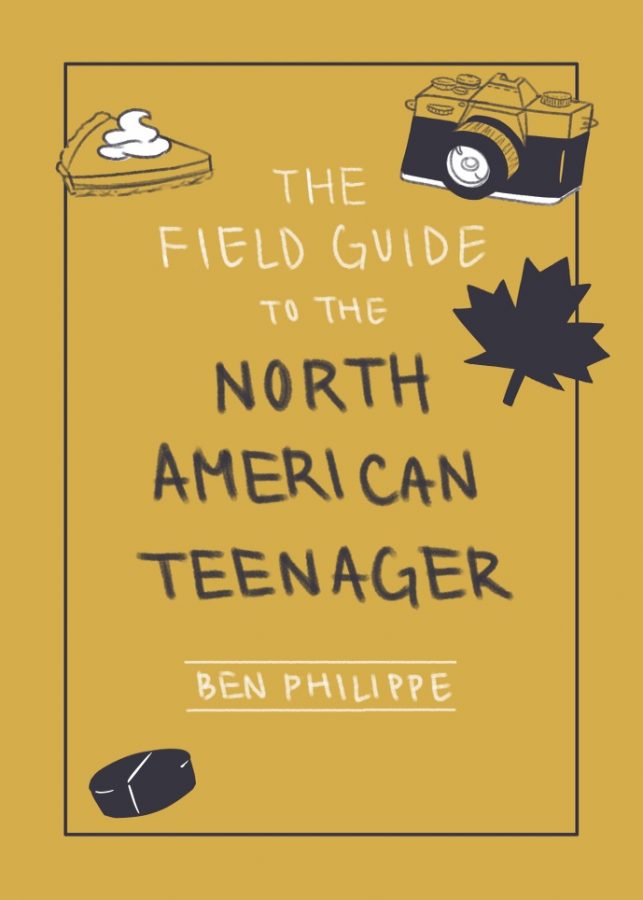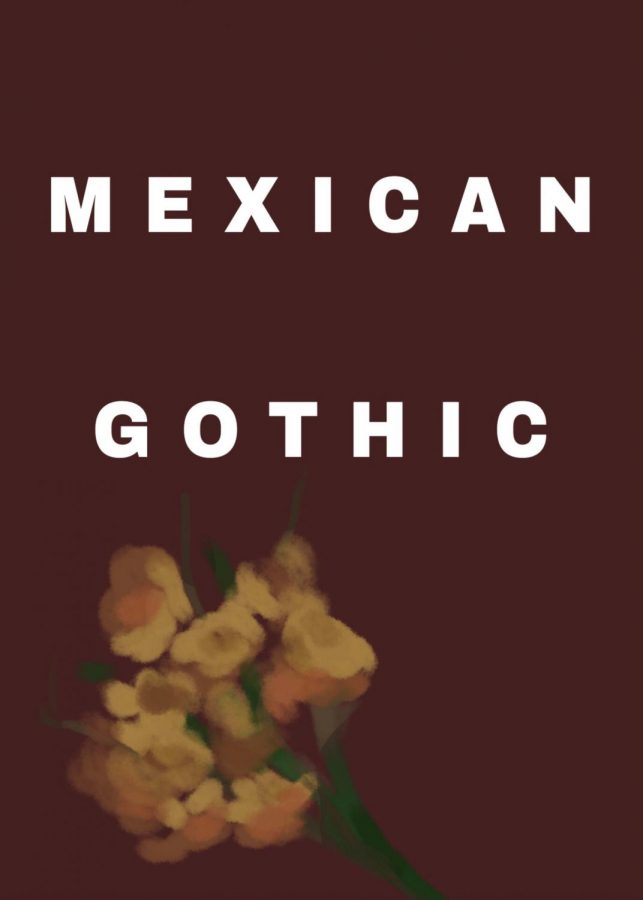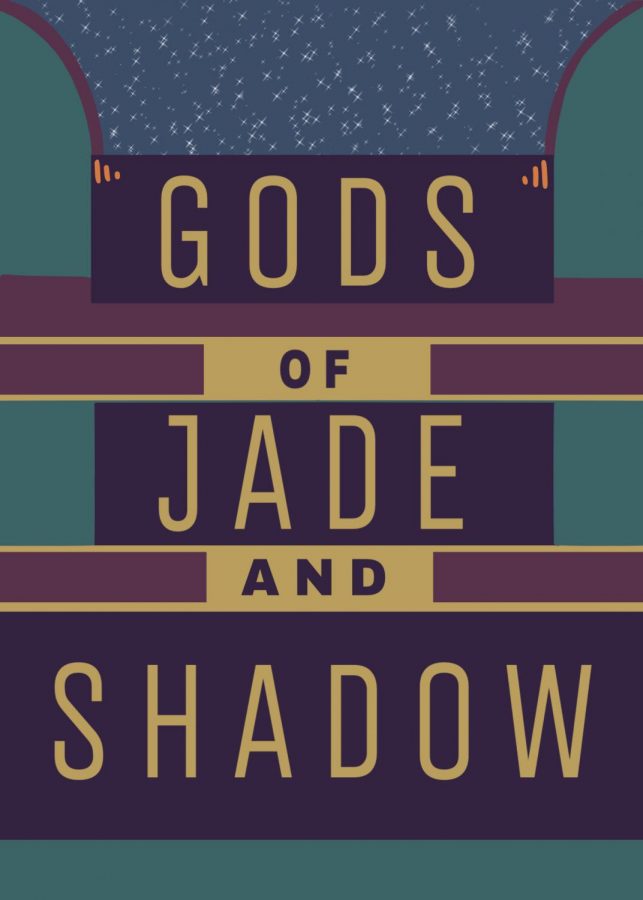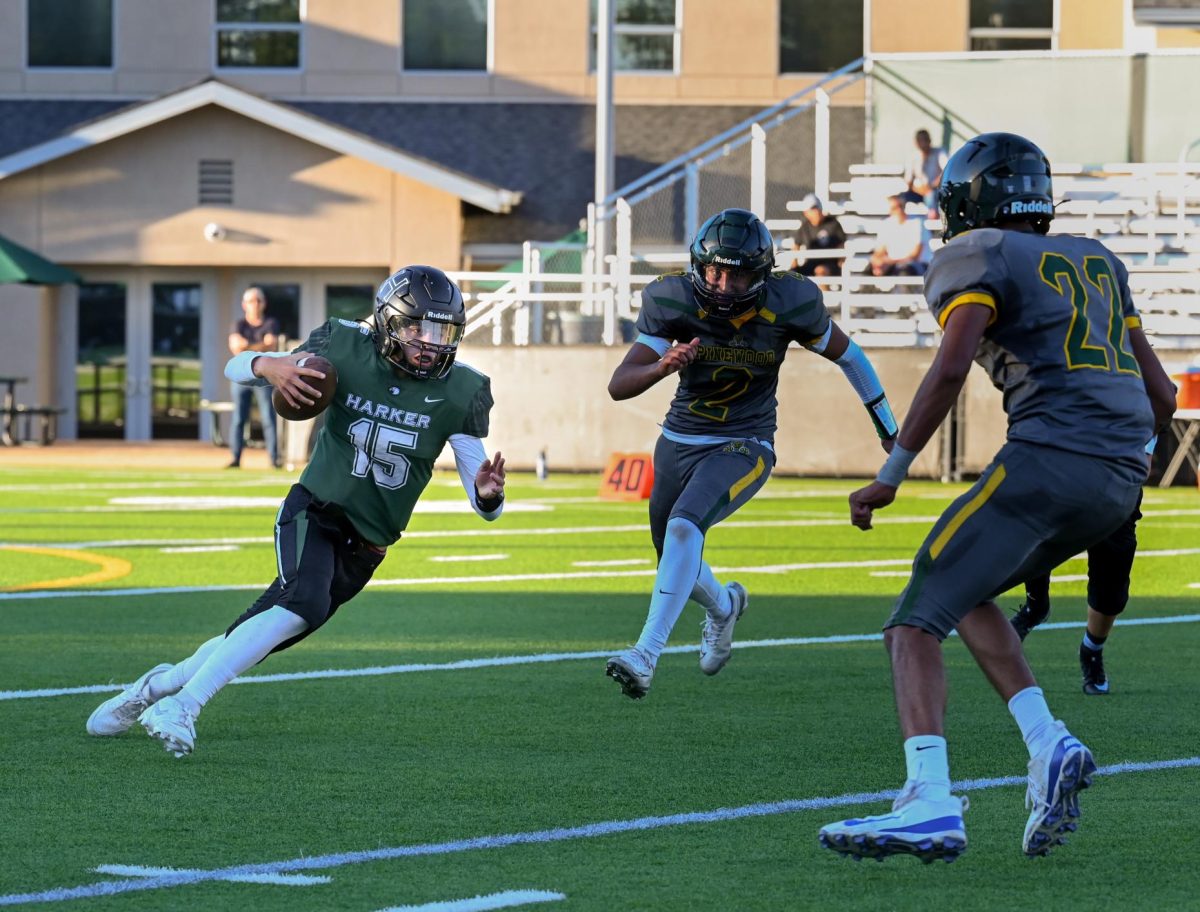Upper school recommends recreational reading, escapism at its finest
The upper school’s reading aficionados and literary circles have gathered their resources to reinforce the benefits and delights of recreational reading and help everyone realize their own reader within.
October 10, 2020
For a split second, a delicate page of leaf-thin paper sits between the pads of my thumb and forefinger, before gently fluttering down like a blossom petal onto the previous page. My fingertips gently caress the ink and paper, but my eyes hungrily devour the story behind each word. As the golden rays of the afternoon sun sparkle through the windowpane, tingling my arms with warmth and illuminating the word-crammed pages, I sigh in utter content.
This is what a good book does for the reader.
Millions of books exist in the world, all fantastic options for recreational reading. Sitting idle in a library in neatly stacked rows or organized online into virtual bookshelves, books exist everywhere, just waiting for you to crack open the cover and discover a world of literary treasures within.
But finding the perfect book can be like looking for a needle in a haystack. With an overwhelming sea of reading options, abandoning the futile search in favor of a Netflix binge session would seem the more appealing choice to counter Sunday afternoon ennui.
Fortunately, you need not fear. Boredom is an easy foe to crush with the Harker upper school by your side.
The upper school’s reading aficionados and literary circles have gathered their resources to reinforce the benefits and delights of recreational reading and help everyone realize their own reader within.
Students can find personalized library book recommendations by the upper school library through a form. Upper school librarian Amy Pelman also offers the Harker Book Blog as a separate resource for finding student-recommended books to read.
“There is a world of books out there and a world of reading experiences, and if people say that they don’t like to read, it’s because they’re not reading the right thing,” Pelman said. “I believe that every single person can enjoy reading if they’re reading the right thing.”
Upper school campus librarian Meredith Cranston agrees that “there is no one kind of reading.” Cranston says that an affinity for any type of reading–webcomics, sports blogs, nonfiction, narratives or factual news–categorizes someone as a reader. The key is encouraging a love of reading through a wide selection of materials, rather than focusing on a singular author, genre or book title.
“By forcing everybody to read the same book instead of cultivating a love of reading, you’re almost taking away that freedom of choice that really is crucial to reading for pleasure,” Cranston said.
Instead of attempting to force fit round pegs into square holes, both Cranston and Pelman hope to help students find books tailored to their interests and “match the right book with the right reader,” a belief shared by Anika Fuloria (12), president and founder of the Diversity, Equality and Inclusion (DEI) Book Club.
“You should read what you really enjoy,” Anika said. “Everyone has a genre of books that is meant for them, and you just have to go out and find it.”
The DEI Book Club, advised by upper school English teacher Dr. Pauline Paskali, picks one book each month by an author from an underrepresented group in the English canon. Their goal is to choose each book with the “purpose of making them fun.”
“We want to show authentic experiences, but we don’t want to show only stories of struggle and hardships,” Anika said.
DEI also works with the upper school librarians to make sure that each book they read as a club is student-accessible on Sora, an ebook and audiobook platform.
With remote learning continuing for the next couple of months, the upper school library has been receiving plenty of ebook and audiobook requests, which Cranston calls “a silver lining” during the remote learning experience.
“For whatever reason, when we were in-person, students weren’t quite as willing to request books,” Cranston said. “Of course, we love to buy titles for students because as far as we’re concerned it’s a good investment, and we know that it would be a guaranteed checkout.”
Plenty of students seem to enjoy genres of fantasy, dystopia, science fiction and historical fiction, according to a graph of popular e-books checked out by students on Sora.
The upper school library has also followed in the footsteps of public libraries by offering students and faculty curbside pickups. This way, the library can continue to fuel increased interest in recreational reading during remote learning while still providing the campus community with school resources.
“People are taking us up on the [curbside checkout] offer a lot because I think they have more time,” Pelman said. “This was the safest and most effective way to get books out of the library into the hands of whoever needs them.”
Recreational reading can often feel like a trivial matter when facing rigorous academics and limited time, both challenges faced by high schoolers. On the contrary, Pelman maintains that recreational reading, along with being “fun, relaxing and stress reducing,” can actually be beneficial to a person’s cognitive and personal development.
“[Recreational reading] is a little like flexing your brain muscles,” Pelman said. “It’s fundamental, it broadens your worldview, makes you more empathetic and provides you with a new perspective and knowledge. Choosing for yourself which new encounters you want to have translates to a powerful experience.”
Pelman, whose favorite genre is realistic fiction, calls reading “the ultimate escape.”
“We’re kind of staring at our four walls all the time, and [reading] is a way to kind of get away from everything from school or stress from family,” Pelman said.
For a solid reading medley featuring comedy, history, sci-fi, romance, graphic novel and even an audiobook, take a look at Pelman’s top six recommendations:
1. “A funny book: ‘The Field Guide to the North American Teenager’ by Ben Philippe
2. An enlightening historical fiction novel: ‘The Fountains of Silence’ by Ruta Sepetys
3. A dark, but important science fiction classic: ‘The Parable of the Sower’ by Octavia Butler
4. A fun romance with lots of unexpected twists: ‘We Are the Perfect Girl’ by Ariel Kaplan
5. A fabulous (non-fiction) graphic novel: ‘Dragon Hoops’ by Gene Luen Yang
6. An amazing audiobook: ‘On the Come Up’ by Angie Thomas”
Like Pelman, Cranston also says that she is “looking for escapism,” and she enjoys a good fantasy book to do just that. Recently, she has found herself gravitating more and more towards “horror, mystery and Gothic fiction of all kinds,” despite normally steering clear of the creepier genres.
“Horror is an escape because it’s so not real, so when I read it, even though it’s scary, it’s a safe kind of scary,” Cranston said. “I love fantasy [as well], and I find it fascinating imagining other worlds that the authors are able to come up with.”
For some killer horror content, check out Cranston’s top six recommendations:
1. “Eerie, atmospheric, CREEPY MIST: ‘Mexican Gothic’ by Silvia Moreno-Garcia
2. You must, must, MUST listen to the audiobook: ‘Devolution’ by Max Brooks
3. Interested in serial killers, ghosts and creepy motels? Try the ‘Sun Down Motel’ by Simone St. James
4. Originated the ‘scary house genre.’ Much better than the Netflix series IMO: ‘The Haunting of Hill House’ by Shirley Jackson
5. In the mood for Victorian mystery about a bitter, possibly magically murderous seamstress? ‘The Poison Thread’ by Laura Purcell
6. Is Narnia too tame? Get ready for chills with the ‘The Hazel Wood’ by Melissa Albert”
As remote learning continues, Anika also finds herself relying more and more on reading as a form of halcyon escapism. She especially enjoys dystopian or fantasy fiction because it helps her “imagine worlds that are not the one we currently live in.”
“Sometimes there are dystopian worlds in the books I read, and I’m really enjoying these during quarantine because reading about these characters helps me expand my sense of what the world actually is and what it looks like,” Anika said.
In light of the recent nationwide racial reckoning, Anika felt it was more necessary than ever to create the DEI Book Club as an accessible tool for anyone who wanted to take personal steps towards making a change.
“The first step is finding empathy, and empathy is found by listening to the stories of other people to understand where they come from,” Anika said.
To diversify your reading, try Anika’s recommendations on behalf of the DEI Book Club:
1. “Gods of Jade and Shadow” by Silvia Moreno-Garcia: DEI Book Club’s September book of the month in honor of Hispanic Heritage Month. A historical fantasy fiction with an adventure plot focusing on Mexican folklore and a must-read for Percy Jackson style storyline.
2. “Over the Top: A Raw Journey to Self-Love” by Jonathan Van Ness: A well thought out memoir great for fans of “Queer Eye” or anyone wanting to learn more about the the LGBTQ+ community.
3. “Little Fires Everywhere” by Celeste Ng: literary fiction on white privilege and anti-Chinese racism shaping suburban family drama.
4. “The Vanishing Half” by Brit Bennett: a 2020 release featuring Black twins, where one decides to live as a white woman and one decides to live as a black woman. See the repercussions on their lives as they experience their different lives as identical twins.
I linger on the last few pages, desperate to reach the end of my journey yet hesitant to part with the adventure. A cool breeze wafts through the open window, carrying me back from a fictive otherworld and into my leather armchair. The last rays of the somnolent sunset give way to a smattering of faint starlight, and the spell is broken. Sighing, I give the book a tight squeeze, gently place it on the dresser, and pick up the next one, ready to escape into another universe of imagination and wonder.


















![“[Building nerf blasters] became this outlet of creativity for me that hasn't been matched by anything else. The process [of] making a build complete to your desire is such a painstakingly difficult process, but I've had to learn from [the skills needed from] soldering to proper painting. There's so many different options for everything, if you think about it, it exists. The best part is [that] if it doesn't exist, you can build it yourself," Ishaan Parate said.](https://harkeraquila.com/wp-content/uploads/2022/08/DSC_8149-900x604.jpg)




![“When I came into high school, I was ready to be a follower. But DECA was a game changer for me. It helped me overcome my fear of public speaking, and it's played such a major role in who I've become today. To be able to successfully lead a chapter of 150 students, an officer team and be one of the upperclassmen I once really admired is something I'm [really] proud of,” Anvitha Tummala ('21) said.](https://harkeraquila.com/wp-content/uploads/2021/07/Screen-Shot-2021-07-25-at-9.50.05-AM-900x594.png)







![“I think getting up in the morning and having a sense of purpose [is exciting]. I think without a certain amount of drive, life is kind of obsolete and mundane, and I think having that every single day is what makes each day unique and kind of makes life exciting,” Neymika Jain (12) said.](https://harkeraquila.com/wp-content/uploads/2017/06/Screen-Shot-2017-06-03-at-4.54.16-PM.png)








![“My slogan is ‘slow feet, don’t eat, and I’m hungry.’ You need to run fast to get where you are–you aren't going to get those championships if you aren't fast,” Angel Cervantes (12) said. “I want to do well in school on my tests and in track and win championships for my team. I live by that, [and] I can do that anywhere: in the classroom or on the field.”](https://harkeraquila.com/wp-content/uploads/2018/06/DSC5146-900x601.jpg)
![“[Volleyball has] taught me how to fall correctly, and another thing it taught is that you don’t have to be the best at something to be good at it. If you just hit the ball in a smart way, then it still scores points and you’re good at it. You could be a background player and still make a much bigger impact on the team than you would think,” Anya Gert (’20) said.](https://harkeraquila.com/wp-content/uploads/2020/06/AnnaGert_JinTuan_HoHPhotoEdited-600x900.jpeg)

![“I'm not nearly there yet, but [my confidence has] definitely been getting better since I was pretty shy and timid coming into Harker my freshman year. I know that there's a lot of people that are really confident in what they do, and I really admire them. Everyone's so driven and that has really pushed me to kind of try to find my own place in high school and be more confident,” Alyssa Huang (’20) said.](https://harkeraquila.com/wp-content/uploads/2020/06/AlyssaHuang_EmilyChen_HoHPhoto-900x749.jpeg)



